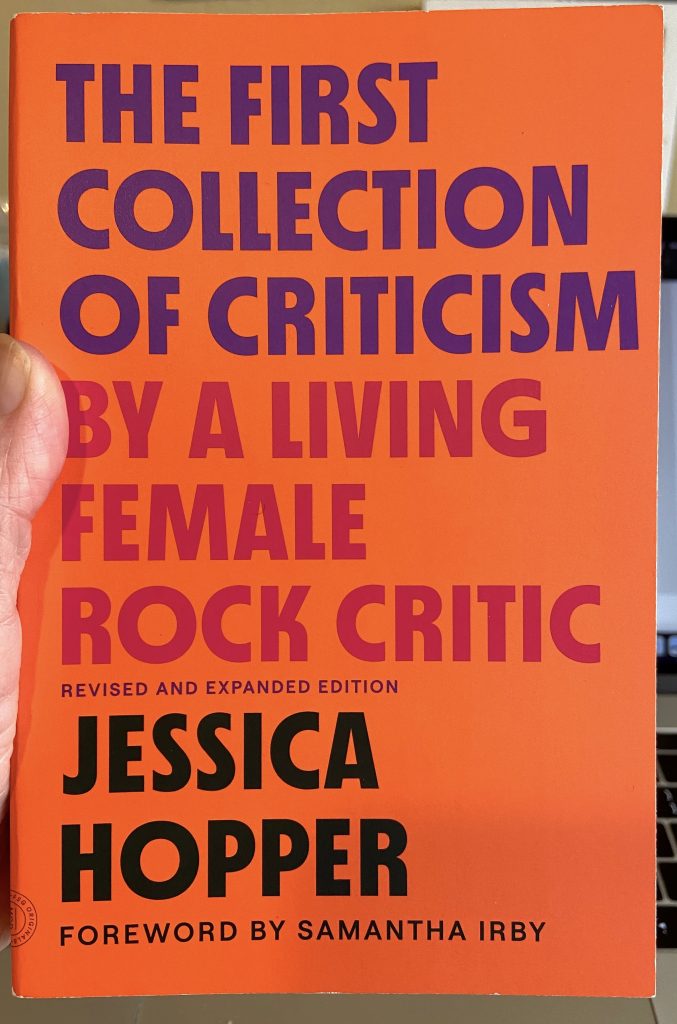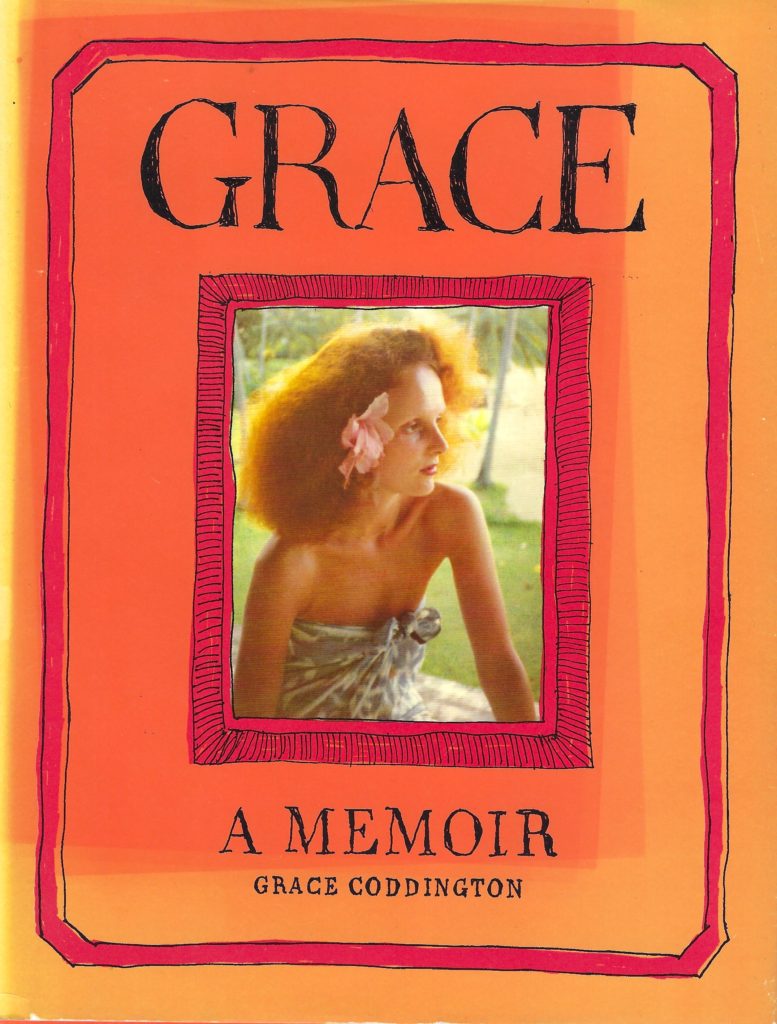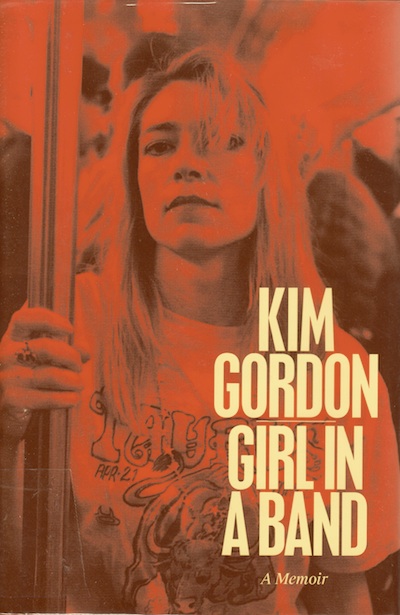I love reading books about music because I can put my headphones in, call up Spotify, and get a soundtrack. I can hear what the writer is talking about. You get one level from listening to the music itself, you get another from reading about it, but the two together? It’s like combining peanut butter and chocolate: a whole that is greater than the sum of its parts.
In The First Collection of Criticism by a Living Female Rock Critic, Jessica Hopper has largely chosen essays about bands with women in them, or are about women in the music industry. (I did not listen to R Kelley during her essay on the sexual abuse allegations against him.) And so my Spotify recommendations and “on repeat” list is now full of female artists I either didn’t know before (see: Cat Power) or hadn’t listened to in years (see: early Fiona Apple and late Sleater-Kinney).
But it’s more than just the music. She writes beautifully and evocatively. The oral history of Rolling Stone, “It was us against those guys”, is a great history of the women who made Rolling Stone into a professional organization and the shit they had to put up with along the way. Those women are still helping each other in their careers today – because to make it as a woman in the music industry is hard and soul-killing and if you don’t help each other, you’re all fucked.
Yes, read The First Collection of Criticism by a Living Female Rock Critic, read about the Chicago punk scene of the early 2000’s, learn more about your favorite female musicians, learn about female musicians you’ve never heard about before, learn about how having to put up with sexist shit day in and day out kills your soul (if that’s an experience you haven’t already had to put up with). It’s worth it.





